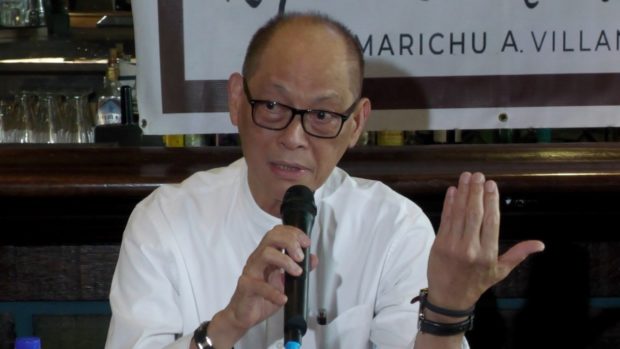Students who are attending state-run universities and colleges (SUCs) must pass a national test in order to be entitled to free tuition and other benefits, instead of enjoying these subsidies by simply getting admitted and retained by the institutions, according to Finance Secretary Benjamin Diokno.
The leader of the Marcos administration’s economic team told journalists this was a part of his proposal, elaborating on his statement made last month when he said free tuition was “unsustainable.”
Republic Act No. 10931, which was enacted in 2017, promotes “universal access to quality tertiary education” by unburdening eligible students of tuition and other school fees charged by institutions of higher education run by the national SUCs and local governments (LUCs) as well as tech-voc institutions.
Covered students
The law covers all Filipino students who are enrolled in courses in pursuance of a bachelor’s degree, certificate degree, or any comparable undergraduate degree. They should have passed the entrance examination and other admission and retention requirements of the SUCs and LUCs.
Not qualified to enjoy “free tertiary education” are those who already have a bachelor’s degree or any comparable undergraduate degree.
Diokno said in a statement that such a policy was being funded by government resources funded by taxpayers’ money which, by nature, were finite and may run out.
“The core of my proposal to revisit the present ‘free’ college education is how to optimally allocate resources funded largely by taxpayers for education,” he said.
‘Inefficient, wasteful’
“The present regime is unwieldy, inefficient and wasteful —an indicator of wastefulness is the rising dropout rate,” he added. “The proposed reform also aims to reduce the threat to the robust private school system.”
Aside from a national examination that would filter qualified students, Diokno’s proposal for an alternative policy includes strengthening the K-12 program.
The basis for this is that if low-income students have a good foundation with basic education, they will have better chances of entering and completing college.
Also, Diokno said students who went through a good K-12 program may choose to join the labor force instead of continuing to college.
“Many are not interested in going to college—they just want better jobs,” he said.
Further, Diokno’s proposal also includes reducing the number of existing SUCs through mergers, which may be done over a period of years. INQ
